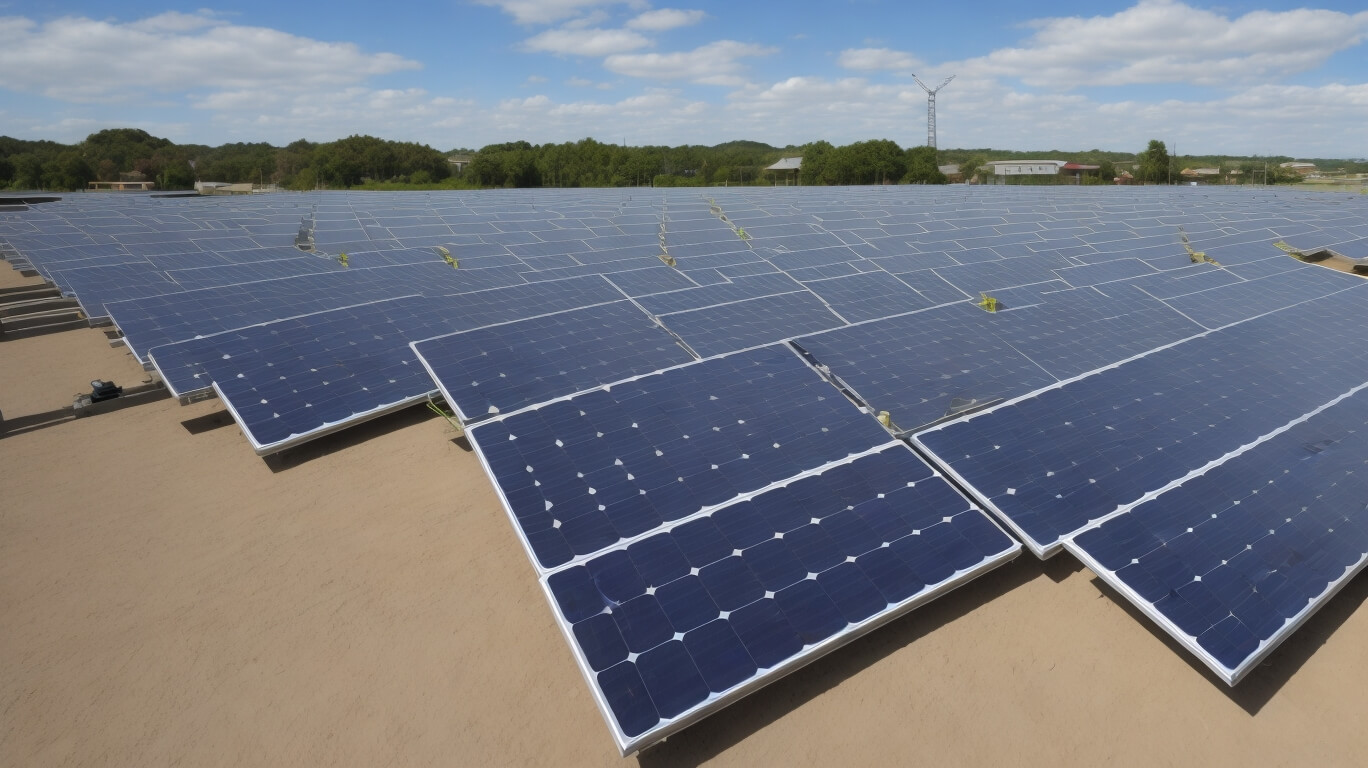
Solar panels convert sunlight into electricity, making it an eco-friendly and sustainable source of power. Unlike fossil fuels, the sun’s energy is practically limitless, and harnessing it doesn’t contribute to air pollution or climate change.
Solar Energy Policies
Governments worldwide are recognizing the importance of solar energy and have implemented various policies to promote its adoption. These policies can take different forms.
Feed-in Tariffs (FiTs) are essential policies that ensure solar energy producers are fairly compensated for the electricity they generate. These tariffs guarantee a steady income, which significantly enhances the appeal of investing in solar energy.
Renewable Portfolio Standards (RPS) are regulatory mandates that require a specific proportion of a region’s energy to be sourced from renewable options, such as solar power. These standards serve as a compelling incentive for utilities to channel their investments into solar energy production. By enforcing a commitment to renewable energy, RPS not only contributes to a greener and more sustainable future but also drives the growth of the solar industry.
Tax Credits are a valuable form of incentive provided by many governments to individuals and businesses opting to install solar panels. These credits serve to substantially alleviate the initial financial burden of acquiring solar systems. By reducing upfront costs, tax credits make solar energy solutions more accessible and financially appealing to a broader range of consumers, ultimately fostering greater solar adoption and contributing to a more sustainable energy landscape.
Net Metering is a policy that empowers solar system owners by enabling them to feed excess energy back into the grid. This not only reduces their electricity bills but also enhances the financial attractiveness of solar power. With net metering in place, surplus energy becomes a valuable commodity, effectively lowering the overall cost of solar investments.
Global Solar Champions
Several countries have made significant strides in promoting solar energy through well-crafted policies and incentives. Here are a few global leaders in the solar revolution:
Germany: Germany owes its status as a solar powerhouse to its effective use of feed-in tariffs. These tariffs provided substantial support, catalyzing the rapid proliferation of solar installations. As a result, Germany has emerged as a global leader in solar energy, setting an inspiring example for other nations to follow in their pursuit of a sustainable and eco-friendly energy future.
China: China’s strategic investments in solar technology, coupled with robust incentives, have catapulted the nation to the top spot as the world’s largest solar energy producer. This achievement underscores China’s commitment to clean, renewable energy sources and showcases its global leadership in the solar energy sector.
United States: The United States has witnessed impressive growth in its solar industry, thanks to the dual impact of the Investment Tax Credit (ITC) and Net Metering policies. The ITC offers financial incentives for solar investments, while net metering allows consumers to sell surplus energy back to the grid. These policies have not only reduced the upfront cost of solar systems but also encouraged widespread adoption, making the U.S. a prominent player in the global solar energy arena, as it continues to harness the power of the sun for a sustainable energy future.
India: India’s National Solar Mission is driving the country towards becoming a global solar leader. Subsidies and incentives are fueling solar adoption in urban and rural areas alike. This concerted effort places India on a path to sustainable, clean energy, with a commitment to harnessing the abundant power of the sun.
Environmental Benefits
Solar energy adoption offers numerous environmental advantages, making it a vital component of the global shift toward sustainable energy sources. Its impact on the environment is far-reaching, from reducing greenhouse gas emissions to contributing to cleaner air and water.
Perhaps the most significant environmental benefit of solar energy is its role in reducing greenhouse gas emissions. Solar power generation produces electricity without the release of harmful gases like carbon dioxide and methane. This contrasts sharply with conventional fossil fuel-based power sources that are notorious for their substantial carbon footprint. Solar energy provides a clean and renewable alternative, helping to mitigate the escalating threat of climate change.
The reduction in greenhouse gas emissions is not just a theoretical advantage; it has tangible effects on the global fight against climate change. As solar energy adoption grows, countries can meet their emissions reduction targets and fulfill their commitments under international agreements such as the Paris Agreement. By reducing our reliance on fossil fuels and transitioning to cleaner energy sources like solar, we curbing the adverse effects of global warming, from extreme weather events to rising sea levels.
Solar energy decreases our dependence on finite fossil fuel resources, such as coal, oil, and natural gas. The extraction and use of these fuels not only deplete limited reserves but also cause substantial environmental harm. Oil spills, air pollution, habitat destruction, and groundwater contamination are among the environmental consequences of fossil fuel production. Solar energy, being renewable and sustainable, eases the strain on these finite resources, thereby reducing their environmental impact.
The energy invested in manufacturing, installing, and maintaining solar panels is swiftly recouped during their operational lifespan. This results in a net reduction of greenhouse gas emissions over the life of the panels.
Reduced air pollution, resulting from decreased reliance on fossil fuels, leads to cleaner air and better human health. Solar power systems do not emit harmful pollutants that can cause respiratory issues and other health problems. Moreover, solar energy systems have minimal water requirements, making them a sustainable choice, especially in regions facing water scarcity. Unlike some conventional power plants that consume substantial amounts of water for cooling, solar panels do not place undue pressure on water resources.
Economic Benefits

One of the primary economic advantages of solar energy is its capacity to generate employment opportunities. As the demand for solar installations surges, a multitude of jobs is created across various sectors. These encompass solar panel manufacturing, installation, maintenance, and research and development. In the United States, for instance, the solar industry has become a notable driver of job growth, providing thousands of positions. This surge in employment bolsters local economies and enhances job prospects for individuals, contributing to the overall economic well-being of communities.
Solar energy policies and incentives significantly reduce energy costs for households and businesses. Installing solar panels allows homeowners and commercial property owners to generate their electricity, offsetting or even entirely covering their electricity bills. As utility costs continue to rise, solar power provides a stable and predictable energy source that protects consumers from the fluctuating prices of traditional energy sources.
The solar industry’s growth has a ripple effect on local economies. Solar installations necessitate components and materials, from solar panels to inverters, all of which are sourced from local suppliers, bolstering regional businesses. Furthermore, solar projects require skilled labor for installation and maintenance, providing opportunities for local contractors and service providers.
Solar energy policies and incentives also foster business growth and entrepreneurship. Incentives such as tax credits and rebates encourage businesses to invest in solar technology, reducing their operational costs. As more companies adopt solar energy, they become more competitive, allowing them to expand and potentially create more job opportunities. Additionally, solar-focused startups are emerging, offering innovative solutions and technologies to meet the growing demand for renewable energy.

